Closing at 3pm on Saturday, January 27
The Beaches Museum will close at 3pm on Saturday, January 27 for a private special event. We will resume normal operating hours on Sunday, January 28! We look forward to seeing you!
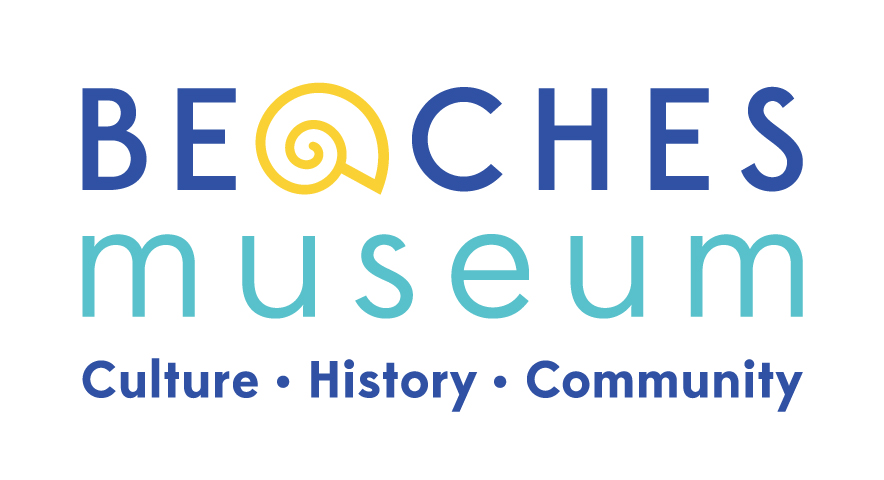
The Beaches Museum will close at 3pm on Saturday, January 27 for a private special event. We will resume normal operating hours on Sunday, January 28! We look forward to seeing you!
The Beaches Museum will be closing at 3pm on Friday and 1pm on Saturday for private special events. We will be open at 10am on both days so please plan your visit accordingly! We look forward to seeing you!
The Beaches Museum will be closed on Saturday, October 21st and Sunday, October 22nd. Pablo Avenue will be used for Air Show transportation and will not be available to our guests and volunteers. We look forward to seeing you when we re-open for our regular hours on Tuesday, October 24! For more information on the Air Show, visit they City’s Website.
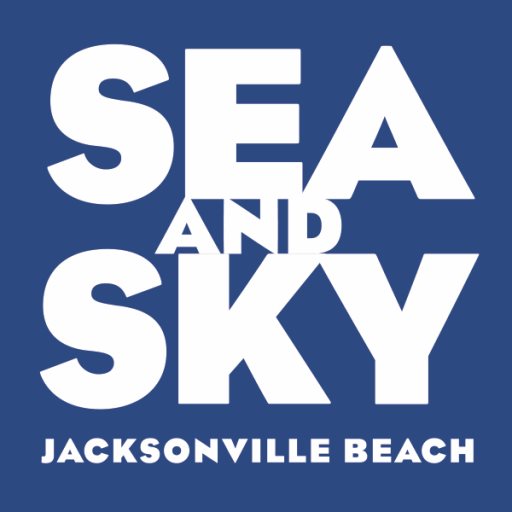
The Beaches Museum will be closing at 1pm on Saturday, August 26. We hope to see you when we resume normal operations on Sunday, August 27 at noon!
The Beaches Museum will be closing at 3pm on Sunday, July 16 for a private event. We look forward to seeing you from 10am-3pm that day or during our regular hours throughout the week!
Florida Humanities, the statewide, nonprofit affiliate of the National Endowment for the Humanities (NEH), has awarded the Beaches Museum a $25,000 grant for general operating costs to help recover from the economic impact of the COVID-19 pandemic.
The NEH received $135 million from the American Rescue Plan (ARP) Act of 2021, which was approved by Congress this past spring. The state humanities councils, including Florida Humanities, each received a portion of the NEH award to support museums, archives, historic sites and other humanities-focused nonprofits. The Beaches Museum was one of 129 organizations in Florida that was awarded ARP funding totaling $1.88 million from Florida Humanities. The grants are intended to meet immediate operational needs in order for organizations to remain viable and maintain delivery of public humanities programming and resources in their communities. Florida Humanities received 188 applications for ARP funding, with nonprofits requesting the most funds for staffing and utilities.
These funds, said Florida Humanities Executive Director Dr. Nashid Madyun, provide a safety net for the organizations so they can focus on other priorities, such as fundraising and creating programming. “For smaller nonprofits, when bills are paid and staff are safe and intact, that type of alleviation is immeasurable,” he said. “Florida Humanities is honored to provide a lifeline to our state’s cultural and historic organizations, ensuring they continue to enrich their local communities, and the Sunshine State at large, for years to come.”
More information about the grant and other awardees across the state can be found here.
Funding for this grant was provided by Florida Humanities with funds from the National Endowment for the Humanities (NEH) as part of the American Rescue Plan (ARP) and NEH’s Sustaining the Humanities through the American Rescue Plan (SHARP) initiative. Any views, findings, conclusions or recommendations expressed in this announcement do not necessarily represent those of Florida Humanities or the National Endowment for the Humanities.
The Beaches Museum is proud to have been awarded CARES Act funding to help mitigate losses due to COVID-19.
Funding has been provided to the Beaches Museum from the National Endowment for the Humanities through a grant from Florida Humanities as part of the 2020 Coronavirus Aid, Relief and Economic Security (CARES) Act of 2020.
Any views, findings, conclusions, or recommendations expressed by (grantee), do not necessarily represent those of Florida Humanities or the National Endowment for the Humanities.”
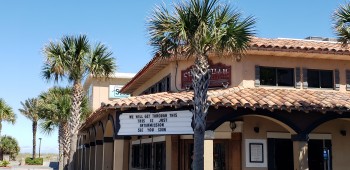
Dear Friends:
The mission of the Beaches Museum is to “preserve and share the distinct history and culture of the Beaches area.” Although the Museum is currently closed, the work of that mission is even more important than ever. We are living tomorrow’s history right now!
To that end, we encourage members of the Beaches community to help us gather information, photos, physical items and first-hand accounts of how you, your family, your business and your community are being impacted. Anything from photos of closed businesses to stories of neighbors helping neighbors will help us compile a thorough accounting of how the Beaches weathered this crisis.
Submissions to our historic record can be sent to archives@beachesmuseum.org.
In addition to working to preserve history as it is made, we are also making more programming available online. Over fifty videos including our Boardwalk Talk Series are now available on our YouTube Channel. We are posting articles, historic photos and more on Facebook and Instagram. We invite and encourage you to take some time to learn a little bit more about the history of our beloved community! Visit beachesmuseum.org to find out more.
Thank you for your support and we look forward to hearing from you as we continue to move our mission forward!
Chris Hoffman
Executive Director
Dear Friends:
The board and staff of the Museum have been monitoring the evolving situation with regards to coronavirus. In an effort to ensure the health and safety of our volunteers, staff and guests, we will be closing the Museum to the public beginning on Tuesday, March 17. We plan to re-open the Museum on March 31.
Additionally, we are postponing the following events:
March 16: Mama Blue concert
March 18: Ritz Chamber Players concert
March 27: “Our Land–Indigenous Northeast Florida” exhibit opening.
We will work to reschedule them as soon as we possibly can. We will send updates on any future cancellations, closures, etc. as we have them.
Thank you for your support and understanding.
Sincerely:
Chris Hoffman
Executive Director
This article was adapted by Archives & Collections Manager, Sarah Jackson, from the permanent exhibit “Waiting for the Train” and the 2017 exhibit “Atlantic Beach: From the Continental to a Coastal Community.”
Henry Flagler (1830-1913) lived “The American Dream.” He was born in Hopewell, New York and later moved to Bellevue, Ohio where he found work at the L. G. Harkness & Company store.
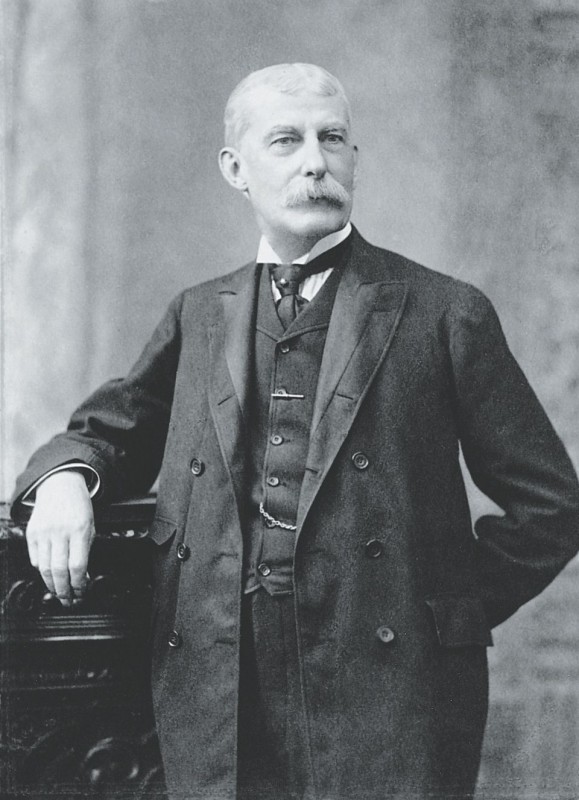
Henry Flagler
During his time in Ohio, Flagler organized several companies in the grain and salt industries before joining John D. Rockefeller, a fellow grain trader, and Samuel Andrews to found Standard Oil, a petroleum refinery. Soon, Standard Oil was doing one-tenth of all petroleum business in the United States and went on to become the largest and most profitable corporation in the world at its peak. Flagler’s involvement with Standard Oil steadily diminished after 1882, but he remained vice president until 1908.
In 1853, Flagler married Mary Harkness, the daughter of Lamon Harkness – owner of the general store where he was formerly employed. Mary’s health was poor throughout her life, although she and Henry had three children: Jenny Louise, Carrie, and Harry Harkness.
Flagler first came to Florida in 1878 when he and Mary came to spend the winter in Jacksonville, Florida in the hopes that Mary’s health would improve. Although she never regained her health and died in 1881, Flagler recognized potential for growth and tourism in Florida and went on to devote most of his remaining years to developing the area. Flagler was especially taken with St. Augustine after an 1883 trip to the area with his second wife, Ida Alice. He returned to St. Augustine within two years to commence construction on the Ponce de Leon and purchase the Jacksonville, St. Augustine, & Halifax Railroad. From these projects, Flagler established the Florida East Coast Railway.
Over the next several years, Flagler continued to purchase smaller, local railroads along the east coast of Florida and connect them to create a railway system unlike any Florida had yet seen, which would span from Jacksonville down into Key West. Other hotels were constructed along the line after the Ponce de Leon, creating a string of hotels that became the Florida East Coast Hotel Company. Around 1899, Flagler set his sights back toward the Jacksonville area and implemented this same pattern at the Beaches.
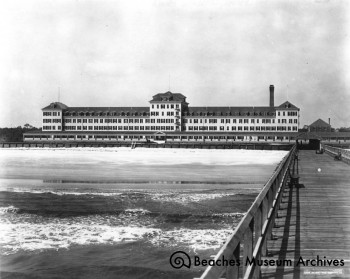
The Continental Hotel, ca. 1902.
The main objective with this new branch was to reach the docks at Mayport along the St. Johns River, which soon also became home to the company’s coal wharf. The coal was needed to fuel Flagler’s growing railway and hotels. The Jacksonville and Atlantic Railway ran from downtown Jacksonville toward Pablo Beach (now Jacksonville Beach). The Jacksonville, Mayport & Pablo Railway operated from the Mayport Village docks over to Burnside Beach on the oceanfront. Burnside Beach was a short-lived luxury resort complex that was built in conjunction with the JM&P Railway, but is now known as part of the land where Naval Station Mayport resides. These two railways were purchased by the FEC and connected along the oceanfront by 1900 to create the Mayport Branch of the FEC Railway. Another FEC Hotel was opened along this line in Atlantic Beach – the Continental Hotel.
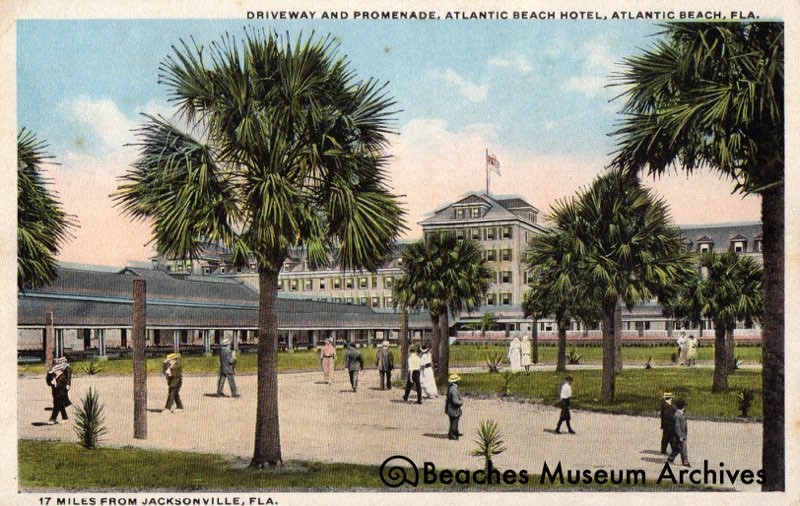
Postcard depicting the Continental Hotel (after it was renamed to the Atlantic Beach Hotel) as viewed from the railway.
The Continental opened in June of 1901. While it still featured luxury accommodations like Flagler’s other Florida resorts, it was simpler in design than hotels like the Ponce de Leon. The hotel featured its own golf course, a detached veranda that wrapped around the hotel for lounging, an 800 foot ocean pier – the Atlantic Beach Pier – for fishing, picturesque drives around the area, and automobiling and racing along the shore.
Stretching along the oceanfront at 447 feet long and 47 feet wide, the wooden hotel provided a grand and palatial figure at the Atlantic Beach seashore. The building was yellow – a specific shade used by the FEC – with green shutters, accommodations for over 200 people, and a dining room that could seat 350 people.
In advertisements for the hotel, the building was described as having an architectural design which was “perfectly balanced and pleasing to the eye” with its symmetry. It was also constructed close to the railway and boasted its own train station along the Mayport Branch.
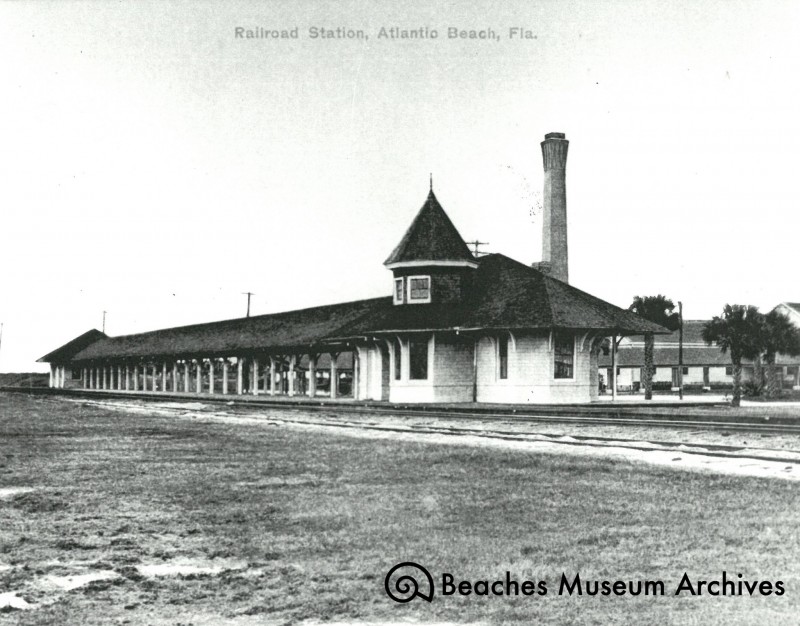
The station for the Continental Hotel, also known as the Atlantic Beach Station.
Despite all of its advantages, the Continental – opened for both summer and winter seasons – was sold by the FEC in 1913 to the Atlantic Beach Corporation. It was then renamed to the Atlantic Beach Hotel until the building burned down in 1919.
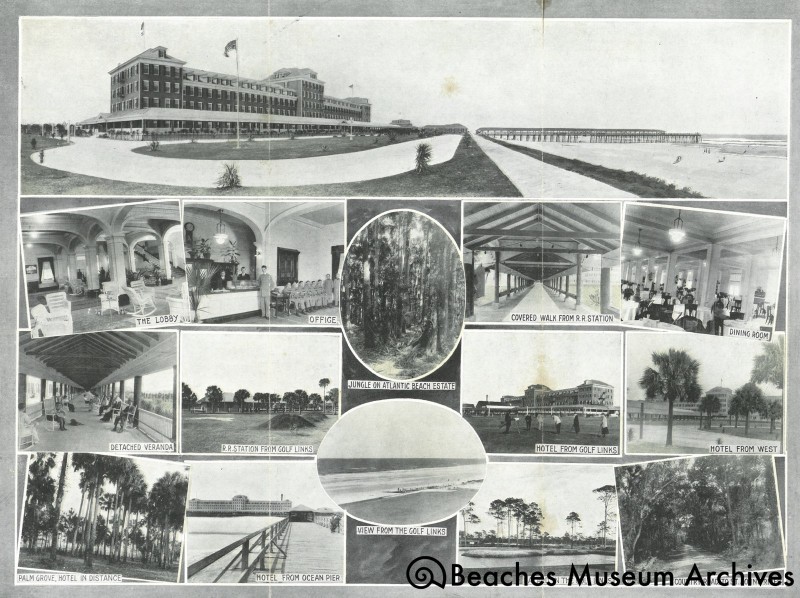
The inside of a brochure for the Continental Hotel after it was renamed to the Atlantic Beach Hotel, which depicts several scenes both inside and around the hotel.
The Mayport Branch continued to operate under the FEC well after the company had sold the hotel. Carrying passengers and cargo to and from the beaches, it remained a staple in local transportation for several years. However, by 1930, the FEC’s interest in the Mayport Branch had and local need for the railway decreased as other methods of transportation improved. Cars were already a regular sight at the beachfront, and in 1931, renovations and an electric drawbridge were completed for Atlantic Boulevard, allowing for greatly increased flow of traffic to the Beaches. The branch ceased operations in October 1932 and marked the end of an ear for the Beaches communities.
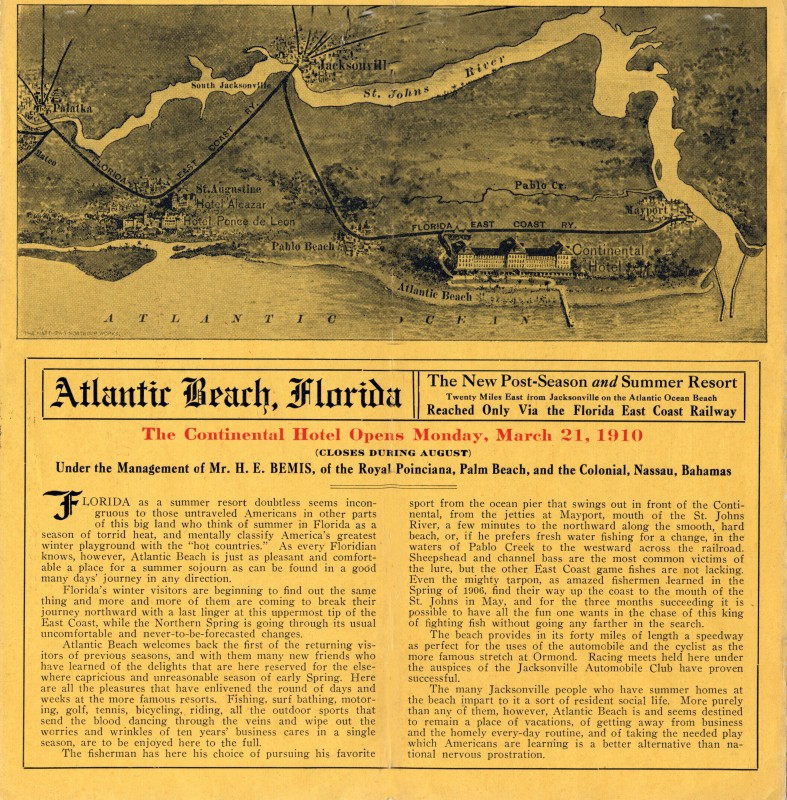
Part of a brochure for the Continental Hotel as it reopened for its 1910 season describing the amenities of the hotel and its surroundings.
Flagler never lived to see the end of the FEC in the Beaches area. In 1913, he fell at his home in Palm Beach and died on May 20. His legacy in Florida continues today both through the company and the communities that developed and expanded around the railway.